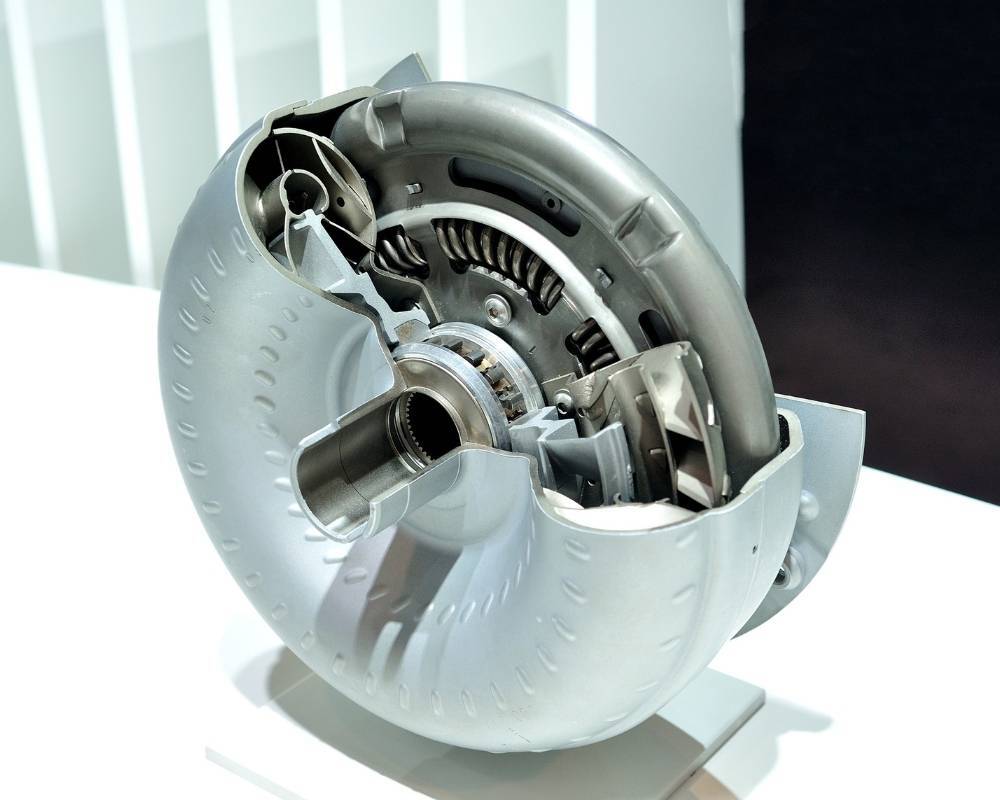TORQUE CONVERTER REPAIR
TORQUE CONVERTER REPAIR
We are the Torque converter repair and refurbish experts. At Mayfair Gearbox we will be able to determine whether or not the problem lies in the transmission itself or the torque converter.
There are several different signs that your torque converter might need a repair. Some common symptoms of torque converter problems include slipping, overheating, and making unusual noises.
If you check your transmission fluid and find that it is opaque instead of mostly clear or that it smells bad, this could also be a sign of a torque converter issue. Unfortunately, all these symptoms could be caused by other problems, too, so the only way to know for sure is to bring your vehicle into our transmission shop for inspection where we can evaluate and diagnose your torque converter repair.
YOUR TORQUE CONVERTER REPAIR SPECIALIST
6 Signs of Torque Converter Problems
It isn’t easy to isolate and diagnose a torque converter issue without taking the transmission/drivetrain apart, but there are several symptoms to look for. A few of the signs of a malfunctioning torque converter include: shuddering, contaminated fluid, gears change at high RPMs and strange sounds such as clicking or whirring.
Slipping
Since a torque converter is responsible for translating engine torque into the hydraulic pressure needed to shift gears inside the transmission, a damaged fin or bearing can cause the transmission to delay a shift, or slip out of gear.
Slipping can also be caused by there being not enough or too much fluid in the transmission. You may also experience a loss of acceleration and a noticeable reduction in your car’s fuel economy.
Be sure to check your fluid levels before taking your car to a shop.
Overheating
If the temperature gauge indicates that your car is overheating, it could be a sign that there has been a drop in fluid pressure and there is a problem with your torque converter. If a converter is overheating, it won’t be able to transfer power from the engine to the transmission. This results in poor throttle response, and excessive wear and tear on the internal workings of the transmission.
Low fluid levels or a malfunctioning solenoid can also cause a transmission to overheat.
Shuddering
If the lockup clutch inside the torque converter is starting to malfunction, you may experience shuddering at around 30-45 mph. The sensation is very noticeable and typically feels like you’re driving over a rough road with many small bumps. As the converter switches over to direct drive, a worn lockup clutch can make the transition difficult, resulting in this sensation. The feeling may start and stop abruptly and may not last long, but if you’ve experienced it several times, it’s time to get your transmission checked.
Contaminated Transmission Fluid
A torque converter is filled with automatic transmission fluid (ATF). If the fluid is contaminated, it can do damage the parts inside. This can result in worn bearings on the stator, or damaged fins on one of the turbines.
If you notice a significant amount of black sludge/grime/debris in the fluid it could mean that the converter or transmission itself is damaged. In this case, change the fluid and drive around for a while before checking the fluid again. If the problem persists, it would be best to bring it in for inspection.
Higher Stall Speed/Gear Engagement RPM
The ‘stall speed’ is the point at which the engine RPMs are high enough for the torque converter to transfer power from the engine to the transmission. In other words, it is the RPM at which the converter will stop the engine speed from increasing if transmission output is prohibited.
If the torque converter is broken, it won’t be able to transfer the engine’s rotational force into hydraulic pressure correctly. This will result in the transmission taking longer to engage the engine, causing the stall speed to increase. Here is how to do a stall speed test. You’ll have to find out what your vehicles stall speed is beforehand (typically 2000 to 2500 RPM).
Strange/Unusual Sounds
It’s not uncommon for the torque converter to emit strange noises as it begins to fail. Some of the sounds you might hear include a ‘whirring’ sound coming from bad bearings, or ‘clinking’ sound coming from a broken turbine fin.
If you are experiencing any of the above symptoms, give us a call for expert advice, or fill in the form below for one of our friendly staff members to contact you!
Manual Gearbox Repairs
Automatic Gearbox Repairs
DSG Gearbox Repairs
Diff Repairs
Truck Gearbox Repairs
Propshaft & CV Repairs
Off-Highway Repairs
Fleet Maintenance

Why are we the best in the industry?
1 DAY
turnaround time on exchange
unit replacement.
OVER 4000
exchange units nationally
to limit down time.
24 HOUR
Roadside Assistance
offered to all clients.
19 BRANCHES
nationwide coverage
across 4 countries.

